Unlike Windows, Linux provides its users complete control over their system and can customize it in any way they like. But there are different distros of Linux, and two of them are Ubuntu and Linux Mint.
There are many similarities between these two, but some key differences too, so which one should you go for? Both are considered the most popular Linux distros and have a large community. Linux Mint is based on Ubuntu but has some impressive improvements over it.
So, in this article, we will discuss the eight reasons why you should consider Linux Mint instead of Ubuntu.
Why Linux Mint is Better Than Ubuntu?
Linux Mint and Ubuntu share a few similarities, and both distributions have pros and cons. In this section, we will list and explain the possible 8 reasons why Linux Mint is better than Ubuntu.
1. Interface
User interface or UI is the key to every OS, and if you just shifted from Windows to Linux, then Linux Mint would be the best for you for the following reasons.
- It resembles the interface of Windows Vista
- You can add shortcuts in the Taskbar
- Choose between MATE, Cinnamon, and Xfce desktop environment
- It gives you an overview of the installed apps in the menu (Cinnamon only)
While Ubuntu’s default desktop is called Unity, which has received lots of criticism due to recent releases, especially the universal search showing the search results from Amazon. Have a look at both interfaces:
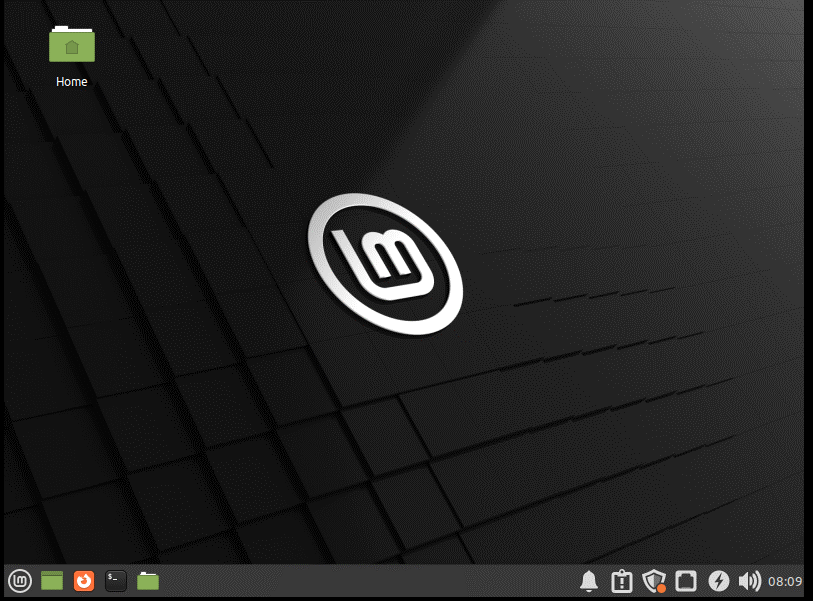
Desktop Screen Linux Mint
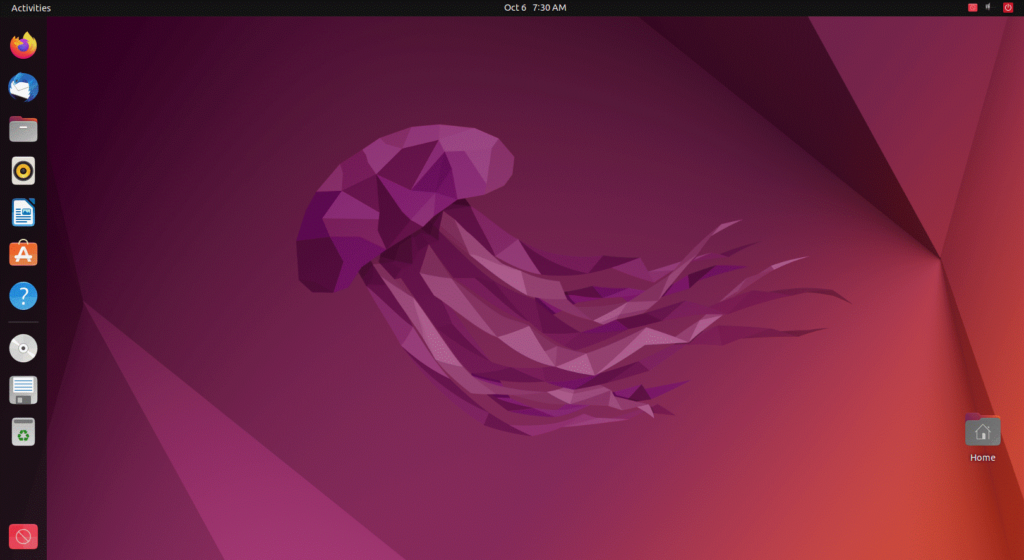
Ubuntu Desktop Screen
For Interface, Linux Mint is more user-friendly, and it looks smooth for experienced and new users migrating from other OS.
2. Performance
For performance, Linux Mint is lighter and takes fewer resources than Ubuntu, as shown below. This makes Linux mint more efficient for daily tasks, even using old hardware. You can see in both the below images that Ubuntu is consuming more memory compared to the Linux mint.
Below is the memory usage of Ubuntu:
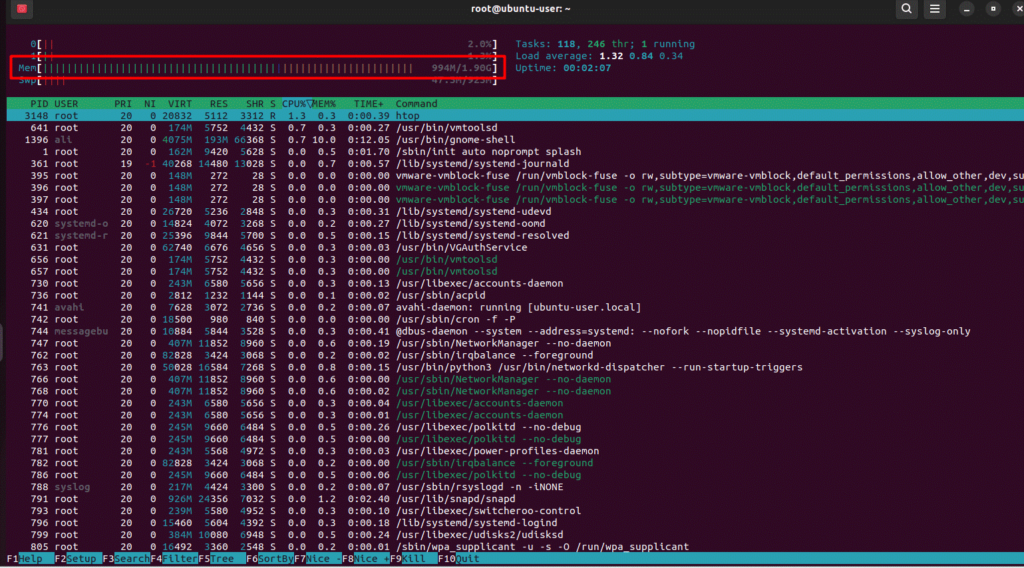
Below is the memory usage of the Linux Mint:
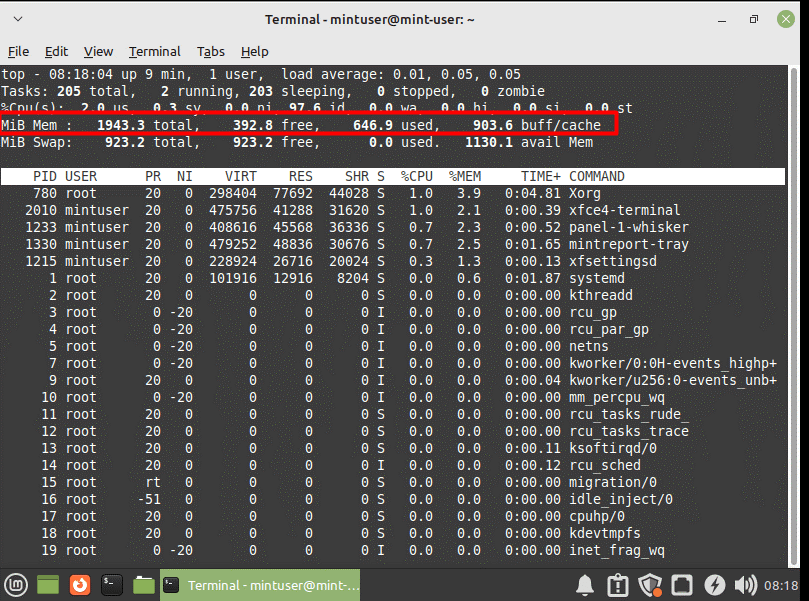
3. Pre-Installed Software
Linux Mint is the perfect choice for those seeking a ready-made system with all the installed essential software. Ubuntu, on the other hand, does require you to install many applications that will consume your time.
Some Pre-installed Software on Ubuntu
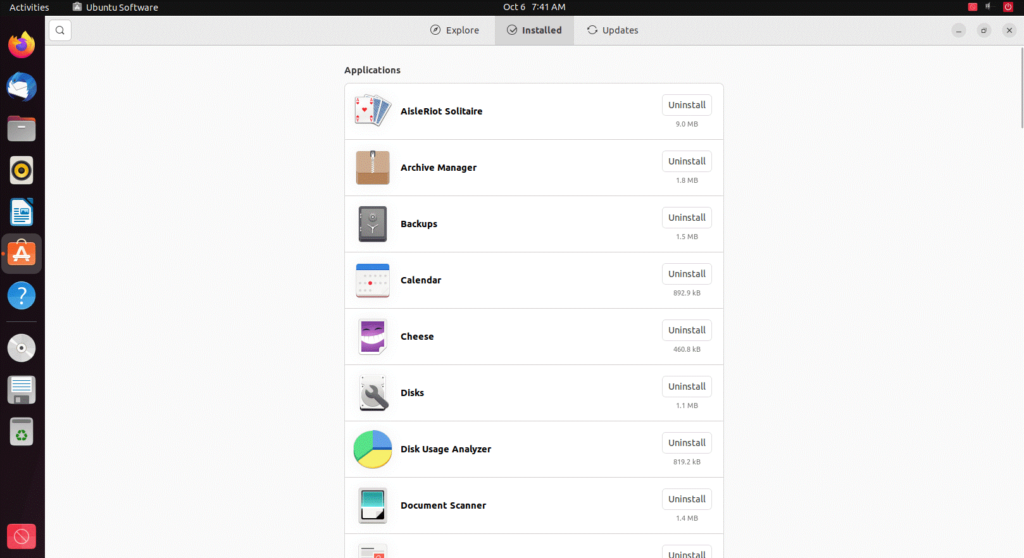
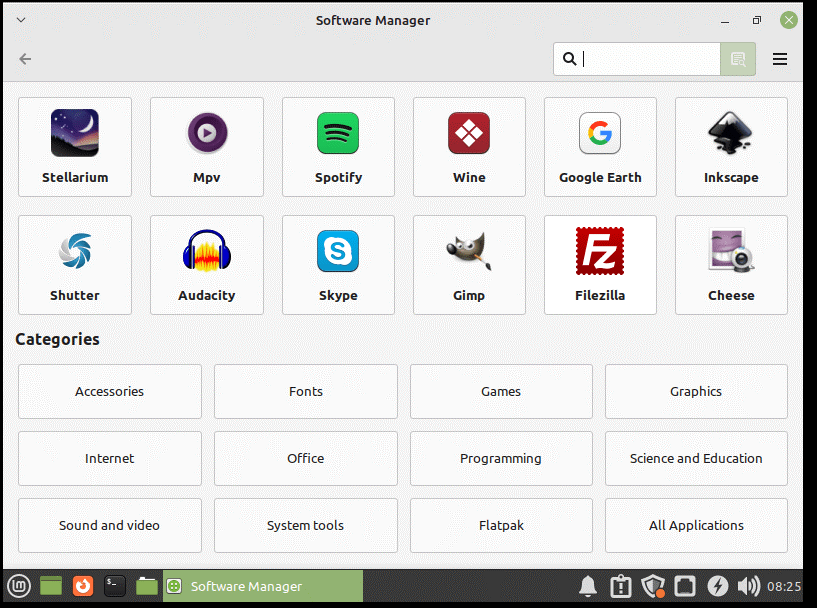
Linux Mint Software Library
4. Usability
For beginners, Linux Mint is an excellent choice due to its familiarity with Windows-based operating systems. But Ubuntu is more complicated, so if you are new to Linux-based systems, you might find it more difficult.
5. System Requirements
The Linux mint Xfce version is the lightest among the three, and you can run it smoothly even on 2GB of RAM and 15GB of storage. Whereas Ubuntu, on the other hand, will require you to have at least 4GB of RAM to run it smoothly and around 20GB of storage.
6. Software Manager
There is a built-in software manager in both distros, but it is much lighter and quicker to load in Linux mint than in Ubuntu. The Ubuntu software manager is not properly optimized, and it takes more time to load, even on high-end hardware.

Ubuntu Software

Linux Mint Software Manager
7. Support
Long-term support is what we want, right? Well, Linux provides support for up to five years on almost all distros, and the same case is with Linux Mint and Ubuntu.
But you will only get updates (5 years) for the GNOME edition and three years of updates for Kubuntu or any other official flavor of Ubuntu. But this is not the case for the Linux mint, as all its versions will receive an update of up to 5 years.
8. Software Sources
The installation and updating process of all software is almost identical, and you get to manage repositories and much more. But Linux Mint takes it to the next level by adding the missing keys and a few other valuable tools not found in Ubuntu.
That’s all from this guide! You would have found a way to conclude why Linux Mint is better than Windows.
Conclusion
The comparison between Linux Mint and Ubuntu started way before, and it continues with more features being added while some are being removed. They have their differences and are almost equally suitable for specific use. However, this guide taught you why Linux Mint is better than Ubuntu.
